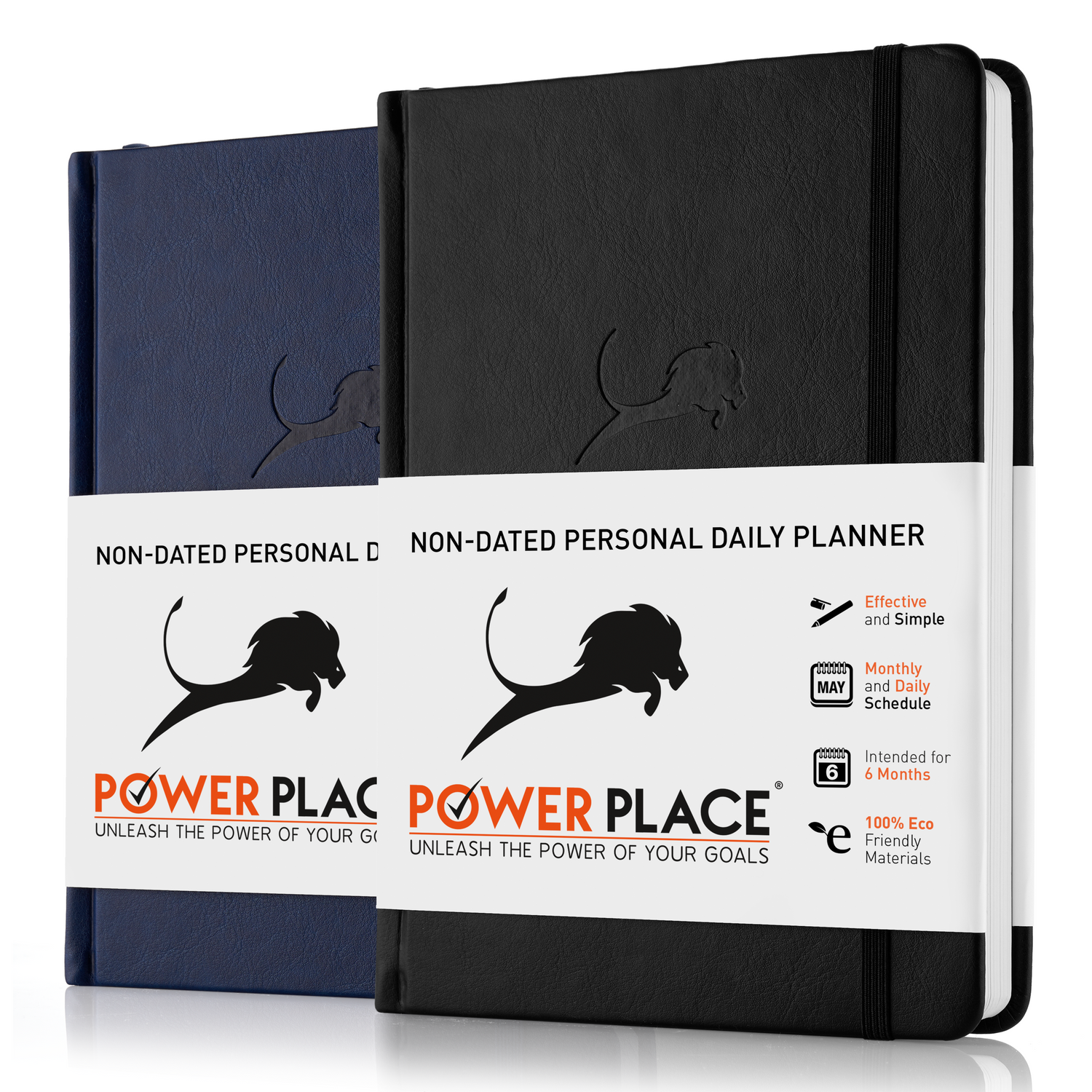
What is productivity? Definition and ways to improve
Share
These days, everyone is obsessed with productivity. We all want to be more productive and achieve our goals, both personally and professionally. It's like a badge of honor that we wear proudly, a symbol of our success in life. However, despite all the talk, we don't always agree on what productivity actually means.
Contrary to popular belief, being productive isn't just about crossing items off a to-do list. Personal productivity is important, but it's not the same as business productivity. When your boss and coworkers have different ideas about what productivity looks like, it can lead to confusion and inefficiency.
In this article, we'll explore the meaning of productivity and how it's evolved over time. We'll discuss how it applies to both individuals and organizations, and offer tips for boosting your productivity in a meaningful way. So, if you're ready to unlock your full potential and reach new heights of success, read on!
What is productivity?
According to the Bureau of Labor Statistics, productivity is a measure of economic performance that compares the output of goods and services to the inputs used to produce them. However, when we talk about "being productive," we often focus on our personal accomplishments. We think of productivity in terms of crossing off items on our to-do list, which measures our efficiency at completing tasks. But not all tasks are created equal, and simply completing a lot of tasks doesn't necessarily mean we're being productive in a meaningful way.

Different perspectives on productivity
Productivity is a topic that everyone seems to have an opinion on, from politicians and economists discussing it at a macro level, to business leaders and managers worrying about it in terms of their teams and employees. And on an individual level, we all make our own assessments of whether we've had a productive day.
Each of these different perspectives incorporates a unique view of productivity. For instance, politicians and economists may look at productivity in terms of a country's gross domestic product (GDP), while business leaders may focus on revenue generated from input, labor, and materials. At an individual level, personal productivity may refer to how efficiently we complete tasks or achieve our goals.
By understanding these different perspectives on productivity, we can gain a deeper appreciation of how it impacts us at various levels, from our daily lives to the broader economic and political landscape.
Personal productivity
Productivity can mean different things in different contexts, especially with the rise of knowledge work and automation. Personal productivity refers to how consistently and efficiently an individual completes tasks or accomplishes goals.
Understanding the different layers of productivity can help you see how your personal productivity at work contributes to your business’s productivity and maybe even how both relate to your country’s productivity.

Beat procrastination and get sh*t done!
Nothing beats the satisfaction of staying on top of your daily tasks and goals. Daily, weekly and monthly sheets keep you organized whether at work or in school.
National productivity
When it comes to countries, productivity is measured by how effectively they transform labor and materials (the input) into goods and services (the output), which is reflected in the country's gross domestic product (GDP). This measure is broad and can help to identify trends in policy and technology, which in turn can indicate economic growth in relation to other factors in the macro-environment. Ultimately, a higher level of productivity can lead to a better standard of living for the residents of that country.
Business productivity
Productivity for businesses is also measured by how effectively they generate revenue from input, labor, and materials. Typically, business productivity is calculated as revenue divided by hours worked. While an aggregate productivity level may not give company leaders actionable insights, it can help them to compare their performance with that of their competition or other leading firms. Ultimately, this information can guide decision-making and help to improve the company's overall productivity.
Organizational productivity
Measuring productivity at the company level involves calculating revenue relative to employee labor hours in a quarter. This can seem disconnected from our day-to-day activities, which may involve tasks that take longer to deliver results or value. However, understanding how our work contributes to the company's overall productivity can help us to prioritize tasks and identify areas for improvement. By aligning our personal productivity with the company's goals, we can help to drive the organization towards greater success.
What is productivity in the workplace?
Workplace productivity is a critical factor in determining the success of a business. It refers to the value that each team brings to the table and measures the output of individuals or teams to gain insights into how an organization can optimize its workflows. By identifying and removing bottlenecks, streamlining processes, and leveraging technology, companies can improve their productivity and achieve their goals more efficiently. Ultimately, workplace productivity is about finding the right balance between people, processes, and technology to drive business success.
Why is productivity important?
Fostering employee productivity that drives business outcomes is an essential part of business success. And it also has a positive impact on employees.
- For businesses:Productivity growth signifies the health and growth of the company. A productive business can expand, offering new services and potentially lowering prices.
- For employees: Productivity is important because it keeps individuals progressing toward their full potential. Being productive allows us to manage our work, home lives, hobbies, and family commitments with ease and peace of mind.
How to measure productivity
Personal productivity is a tricky thing to measure, especially in our modern age of knowledge work where creativity and innovation are the norm. It used to be simpler, when productivity was just about how many widgets you could make in an hour.
But now, it's about so much more than just output. Some argue that excellent customer service or coming up with groundbreaking ideas should count towards productivity, but it's hard to put a number on those things. Despite the disagreements, it's still important to think about what productivity means to you in your particular role and type of work. Then try to set the conditions to improve it — whatever the metric:
- What is the appropriate way to assess quality or value?
- What is the relevant measure of quantity?
- What are the inputs we want to use most efficiently?
When it comes to measuring productivity, it's not just about how many tasks you complete or how fast you can do them. In today's world, where we're often engaged in knowledge work, productivity is more complex. The key is to think about productivity in terms of value.
Value is about achieving desired outcomes, and not all tasks are equal in terms of the value they deliver. So, productivity should be calculated as the ratio of the value of the work to the time and effort spent on it.
This shift in thinking also applies to companies. A productive company is one that is aligned with its priorities, executes quality work, and does so efficiently. So, if you want to be productive in your work and help your team or company succeed, focus on delivering value, not just completing tasks.
The benefits of improved productivity
Being more productive is a common goal, but it’s also a goal that many people struggle with.
Only 21% of UK office workers report that they are productive all day, and the average actual productive time in an 8-hour workday is 2 hours and 53 minutes.
Naturally, the challenges employees face with productivity ultimately reflect in the company’s overall output, too.
-
Increased efficiency: By being more personally productive, people can complete their work efficiently, tackle errands quicker, and enjoy more free time.
-
Improved employee well-being: Productivity can help employees enforce healthy work/life boundaries and feel more in control of their circumstances. Some people may even enjoy their work more when they’re productive, and they’re likely to feel less stressed, too.
-
Improved individual and company performance:Traditionally, we associate productivity with performance. Each person’s productivity and performance contribute to business success, leading to lower prices, higher profitability, and potentially higher pay for employees.
- Enhanced scalability: When a business has high productivity levels, it uses its resources more efficiently and is poised for growth and expansion.
What are some examples of productivity?
When it comes to productivity, the goal is always to maximize output for the input given. For businesses, input can mean capital, materials, or labor cost, while for individuals, it's typically time, effort, and dedication.
Motivating employees is an essential aspect of improving labor productivity, and the same holds for personal productivity. After all, staying inspired and motivated contributes significantly to individual productivity levels.
Luckily, there are various strategies that individuals and organizations can utilize to enhance motivation and productivity. Personal productivity can be boosted by implementing techniques that allow you to get more done without sacrificing quality. Some popular ones include:
- Breaking large projects into smaller tasks
- Using the Pomodoro Technique (work in short 25-minute intervals)
- Developing a restorative morning routine
- Prioritizing your to-do list to focus on the most important tasks
Businesses can use gamification to motivate employees and increase employee engagement.
When Microsoft added gamification to the sales processes, they saw a 10% productivity increase in contact centers. Plus, 78% of their agents stated they felt empowered and encouraged to perform better at work.

In addition to productivity techniques, there are other factors that can affect business productivity. For example, Myosh, a software company, has found that implementing a remote work policy can bring significant gains in productivity and cost savings, even before the pandemic made it a necessity.
But it's not just about policies and technologies. At the heart of it, motivation and company culture can play a vital role in driving productivity, performance, and profitability. By understanding what drives your employees and fostering a positive work environment, you can help your teams perform at their best and achieve the outcomes that matter most.
How does productivity work?
Productivity is a buzzword that gets tossed around a lot, but what does it really mean?
At its core, productivity is all about getting more done with less effort, time, and resources. This applies not just to individuals, but to businesses and even entire nations.
For businesses, productivity is about producing more goods and services with fewer resources, whether that's labor, capital, or materials. It's all about finding ways to streamline processes, reduce waste, and optimize operations to achieve more with less.
Of course, measuring productivity is easier said than done. In today's knowledge-based economy, it's not always easy to quantify the value of the output we produce. But that doesn't mean we can't measure productivity at all. By comparing the amount of effort, time, and resources used to produce an equivalent output of sales or revenue, businesses can calculate their labor productivity using a simple formula.
At the end of the day, productivity is all about finding ways to work smarter, not harder. By understanding what motivates us and developing strong cultures that inspire and engage employees, individuals and businesses alike can achieve greater productivity, performance, and profitability.

Productivity is a key factor for success in both personal and professional settings. It involves achieving desired outcomes while minimizing the resources used, such as time, effort, and materials. For businesses, productivity is essential for profitability, while for governments, it is important for overall economic growth.
Traditionally, workforce productivity has been measured by the number of goods or amount of revenue generated in a given period. Higher productivity means that employees are working more efficiently, resulting in increased profits for the company. However, low productivity can indicate issues in the production process or a lack of necessary resources, such as materials or capital.
Governments measure multiple factors to understand overall economic productivity and identify productivity trends. For instance, working from home became a significant trend in 2020, and data suggests that allowing employees to work remotely one or two times a week could increase national GDP.
Individual productivity is also crucial. By focusing on outcomes, individuals can identify which tasks provide the most value and allocate resources accordingly. By using techniques such as time management and prioritization, individuals can increase personal productivity without sacrificing quality. Ultimately, productivity benefits both individuals and organizations and is critical for achieving success.
What factors affect employee productivity?
A lot goes into creating a work environment that fosters productivity. Here are some of the most common factors we’ve seen companies enhance to engage and motivate their employees to embrace a productive work culture.
Work environment
The work environment of an employee can make or break their well-being and performance. It comprises several elements, including management styles, company values, communication methods, leadership, company culture, and trust in the workplace. By making valuable investments in all these areas, one can prevent toxicity from creeping in and significantly improve productivity. Thus, it is imperative to prioritize each of these elements to create a positive work environment that enhances well-being and maximizes output.
Growth opportunities
Career growth and professional development opportunities can be powerful motivators for employees. They want to feel valued for their contributions, work on challenging projects, and be rewarded for their impact. Creating well-defined career growth paths can help build momentum and increase productivity.
By providing career growth paths, employees can see how they can advance in the company and achieve their goals. It shows that the employer recognizes their efforts and is committed to their development, leading to a sense of purpose and dedication. In turn, this can lead to a more engaged and productive team.
To inspire and motivate your team, consider developing comprehensive career growth plans that empower employees to reach their full potential.
Opportunities to socialize
While some employees thrive in an office environment and group settings, others prefer to work independently or remotely. However, regardless of individual preferences, it's crucial to provide opportunities for employees to connect, either in person or virtually. Socialization plays a vital role in building trust, encouraging creativity, promoting collaboration, and improving communication within teams. These events can include social outings or work-related team-building activities.
Therefore, it's important to prioritize opportunities for socialization and team building within your organization, even for those who prefer to work independently. By doing so, you can foster a more cohesive and connected team that is better equipped to tackle challenges and achieve success.
Manager and peer feedback
Feedback is crucial for employee engagement and productivity. According to a survey, recognition is the most impactful element of engagement. Regular check-ins and opportunities for feedback can improve productivity. Encourage open communication, active listening, and constructive criticism to create a healthy feedback culture. This can lead to increased productivity and employee satisfaction.
Psychological safety
Psychological safety is critical for workplace productivity. When employees feel a sense of belonging, it can increase their focus, strategic planning, and goal attainment. This highlights the importance of creating a psychologically safe workplace through effective communication, vulnerability, and empathy. By fostering an environment where employees feel safe to share their thoughts and ideas, organizations can reap the benefits of increased productivity and goal achievement.
Access to tools and systems
Improving the digital employee experience is key to building a more productive team. Providing the necessary tools for individuals to work efficiently is crucial, whether it be transactional tools like sales enablement software or soft skill development tools like project management and collaboration software. Furthermore, many teams operate more effectively when there is a clear structure in place. Therefore, implementing systems and processes that support employees to do their best work is essential for increasing productivity and success.
Clear expectations
Clear communication and setting expectations before beginning a project can have a significant impact on a team's productivity. By investing time at the start to establish guidelines, teams can avoid spending excessive time on revisions or rework. This proactive approach allows teams to work more efficiently and effectively, ultimately saving valuable time and resources.
How can you be more productive?
Realizing the impact of your personal productivity on the larger system can be a powerful motivator to improve your productivity at work. Knowing that your efforts contribute to the success of the team can be a source of inspiration to work harder and strive for greater productivity. Recognizing the value of your role can help you feel more invested and engaged in your work, leading to even greater productivity gains.
Here are some valuable tips to help you be more productive at work.
Gamify your tasks
Turn checking off your to-do list into a challenge, and get your co-workers involved, too.
According to recent studies, 89% of employees believe that incorporating gamification into their work tasks would make them more productive. Utilizing healthy competition is a great way to increase productivity levels. Consider creating a productivity group and offer prizes to those who check off the most tasks from their to-do list in a day or week. This approach can be a fun and effective way to motivate employees and help them accomplish more in less time.
Take breaks
Taking breaks helps us be more productive by refreshing our perspective and helping us discover new ways of solving problems. Using the Pomodoro technique can remind us to take short breaks and refocus our minds.
Avoid distractions
Distancing yourself from distractions can boost your productivity. Turning on "work mode" on your phone, silencing chat notifications, or keeping your phone out of sight can help minimize interruptions.
Define your goals
When it comes to productivity, knowing your objectives is crucial. By keeping your goals at the forefront of your mind and creating a short-term to-do list that aligns with your overarching goal, you can stay motivated and on track. This approach not only helps you focus on what's most important but also provides a sense of accomplishment when you cross tasks off your list. By staying focused on your objectives, you can maximize your productivity and achieve your desired outcomes.
Discover when you’re most productive
Tracking your daily activity and reflecting on the quality and value of your output can provide valuable insights into your productivity patterns. While activity tracking tools can be a useful starting point, it's important not to rely solely on them as a measure of productivity. Take the time to reflect on how you feel about the work you're doing, and use this information to identify the times of day or types of tasks that you find most productive.

Understanding your own work habits and preferences can be a valuable tool in maximizing your productivity. For example, you might find that you work best on creative tasks in the morning, while administrative tasks are better suited for the afternoon. By taking note of when you are most productive and organizing your day accordingly, you can schedule tasks in a way that sets you up for success.
Communicate with your team
Learning to delegate and collaborate can help you become more productive. Sometimes, when you're focused on being efficient, you might think that doing things on your own is better than taking the time to bring in others. However, reaching out to a team member for help can often lead to better and faster results. By working together, you can get better answers quickly and ultimately create more value. A quick message or phone call may be all you need to keep moving forward.
Tips to develop a more productive team
We covered the factors that affect productivity at work. Here are some tips for managers and leaders to put into practice:
- Invest in your teams’ well-being by offering coaching, mental health days, or volunteer days, for example.
- Carve out paths for employee growth and development
- Provide incentives and reward good work with employee recognition programs
- Communicate expectations clearly and early on
- Avoid the temptation to micromanage and give your team the space they need to work productively
- Establish clear feedback loops for all employees
- Understand your teams’ individual skillsets and use this knowledge when delegating tasks
Time to hone your productivity skills
By improving your productivity skills, you can become more efficient and effective in all areas of your life. This can lead to more free time to spend with loved ones, pursue hobbies, or just relax and recharge. Don't be afraid to try out new productivity techniques and tools to see what works best for you. Remember, small changes can lead to big results.




